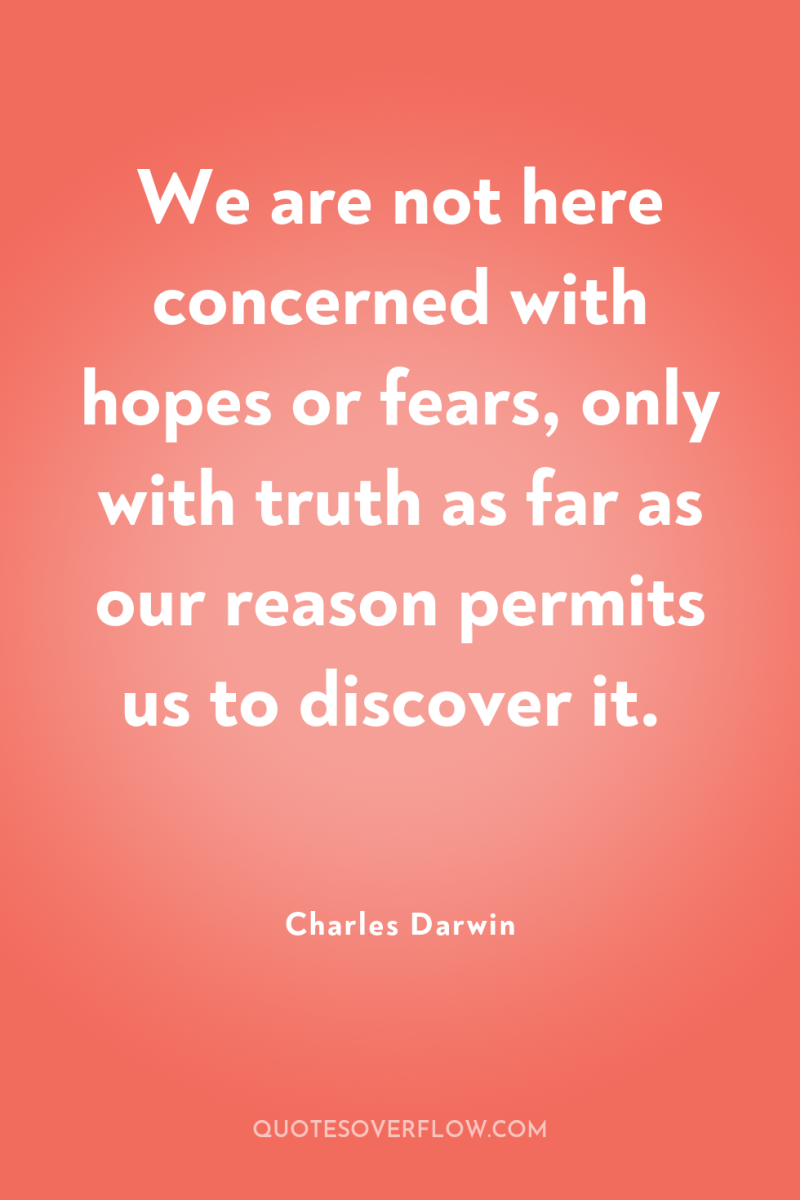
1
We are not here concerned with hopes or fears, only with truth as far as our reason permits us to discover it.Charles Darwin
2
Ignorance more frequently begets confidence than does knowledge: it is those who know little, not those who know much, who so positively assert that this or that problem will never be solved by science.Charles Darwin
3
The following proposition seems to me in a high degree probable–namely, that any animal whatever, endowed with well-marked social instincts, the parental and filial affections being here included, would inevitably acquire a moral sense or conscience, as soon as its intellectual powers had become as well, or nearly as well developed, as in man. For, firstly, the social instincts lead an animal to take pleasure in the society of its fellows, to feel a certain amount of sympathy with them, and to perform various services for them.Charles Darwin
4
Man with all his noble qualities, with sympathy which feels for the most debased, with benevolence which extends not only to other men but to the humblest living creature, with his god-like intellect which has penetrated into the movements and constitution of the solar system–with all these exalted powers– Man still bears in his bodily frame the indelible stamp of his lowly origin.Charles Darwin
5
For my own part I would as soon be descended from that heroic little monkey, who braved his dreaded enemy in order to save the life of his keeper; or from that old baboon, who, descending from the mountains, carried away in triumph his young comrade from a crowd of astonished dogs–as from a savage who delights to torture his enemies, offers up bloody sacrifices, practices infanticide without remorse, treats his wives like slaves, knows no decency, and is haunted by the grossest superstitions.Charles Darwin
6
A moral being is one who is capable of reflecting on his past actions and their motives–of approving of some and disapproving of others.Charles Darwin
7
As the great botanist Bichat long ago said, if everyone were cast in the same mould, there would be no such thing as beauty. If all our women were to become as beautiful as the Venus de’ Medici, we should for a time be charmed; but we should soon wish for variety; and as soon as we had obtained variety, we should wish to see certain characteristics in our women a little exaggerated beyond the then existing common standard.Charles Darwin
8
At some future period, not very distant as measured by centuries, the civilised races of man will almost certainly exterminate and replace throughout the world the savage races. At the same time the anthropomorphous apes, as Professor Schaaffhausen has remarked, will no doubt be exterminated. The break will then be rendered wider, for it will intervene between man in a more civilised state as we may hope, than the Caucasian and some ape as low as a baboon, instead of as at present between the negro or Australian and the gorilla.Charles Darwin